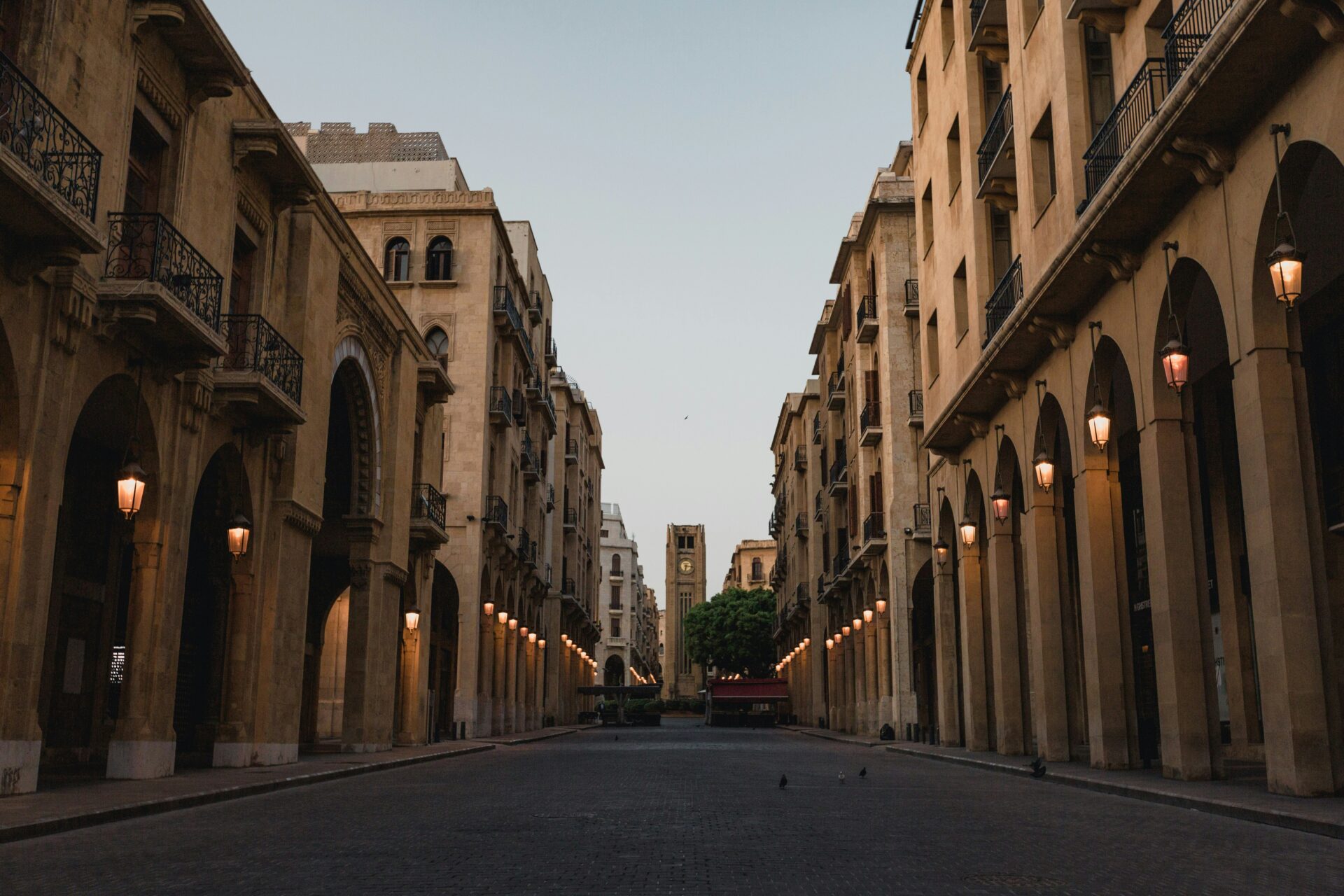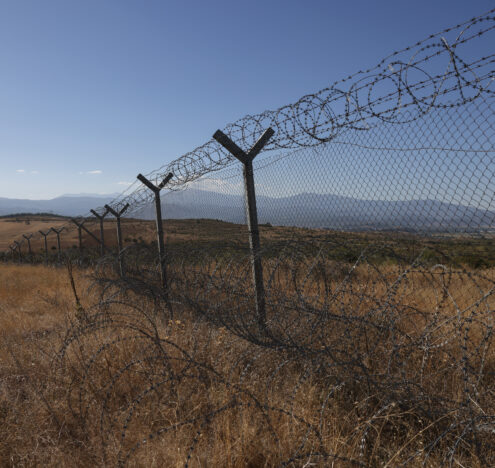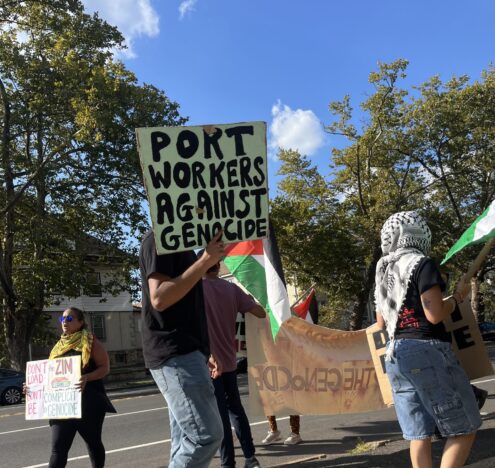Fear is Omar’s* constant companion. As a Syrian refugee living in Lebanon, he says the current situation — including threats of violence and deportation — “is very bad and cannot be described by words.” Yet, he doesn’t have only himself to worry about. Many of his loved ones face the same hardships.
Omar lives in Bekaa, a region where many Syrians reside due to its proximity to their home country and the work they find in agricultural fields. Recently, the Lebanese army rounded up and deported one of his friends to Syria. Now, his friend faces the prospect of forced conscription into the Syrian military. Omar and others are now scrambling to raise enough money to get his friend out of Syria before he has to begin mandatory military service.
It’s a situation that has become part and parcel of life for Syrian refugees in Lebanon today. Many must go home before 8 p.m. to comply with a curfew several governorates and municipalities have put in place. To be Syrian in Lebanon in 2024 means running the risk of authorities shuttering their businesses, rejecting their residency applications, or turning down work permits.
Worse still, it also means living with the fear of going out and enduring insults, harassment, assault, or even deportation to the very country they fled. “Arbitrarily arresting, torturing, or deporting Syrians who face a well-founded risk of persecution if returned are additional blights on Lebanon’s refugee record,” Ramzi Kaiss noted in a recent Human Rights Watch report.
Against this backdrop, a growing number of Syrian refugees are fleeing the country with hopes of reaching Europe. Yet, as the European Union seeks to reduce the number of arrivals to the continent, the bloc has begun bankrolling Lebanese authorities to help prevent departures.
Violence and Discrimination
In Lebanon, anti-Syrian sentiment has gained traction for years, but it has become more virulent in recent months. As government officials and politicians ramp up incitement, Syrians have become a convenient scapegoat for the country’s ongoing crises.
Outrage came after the abduction of Pascal Sleiman, a senior official with the right-wing Christian party the Lebanese Force, in April. His body later turned up in Syria, which prompted an intense campaign of violence and repression targeting Syrians in Lebanon. Across the country, especially in Christian areas, Syrian refugees had to go into hiding to avoid threats and beatings.
The United Nations’ refugee agency, UNHCR, says some 83% of Syrians do not have legal documents to remain in Lebanon. Worse still, they are facing an uptick in arbitrary detentions due to their nationality, destruction of their homes and possessions, and violence at the hands of authorities, according to the Access Center for Human Rights.
Meanwhile, refugee boats have taken off from northern Lebanon toward Cyprus, a divided island nation and EU member country. With the number of arrivals growing, politicians and officials in Cyprus have taken a hardline anti-migrant stance. “The Syrian refugee population in Lebanon cannot be absorbed by Cyprus,” Andreas Georgiades, the head of the country’s asylum service, said in March. “We need to reevaluate the policy on Syria and assist Lebanon.”
In April, the Cypriot government froze Syrian asylum applications. That same month, Cypriot President Nikos Christodoulides called on the EU to intervene and leverage its aid to Lebanon to get the country to block departures bound for the island.
Border Control Management
On May 2, the EU announced one billion euros (around $1.06 billion) to Lebanon over a three-year period. While part of the aid package will go toward strengthening Lebanese security services, the bulk of the money is reportedly earmarked for Syrian refugees and “other vulnerable groups” in the country.
Benjamin Fève, a research analyst at the Triangle think tank, said the announcement of the aid package was a “publicity stunt,” adding: “European Commission President Ursula von der Leyen granted it a month before the European elections, visiting the country herself to announce the gesture.”
But Peter Stano, a foreign affairs and security policy spokesperson for the European Commission, defended the aid deal with Lebanon. Stano explained that the portion for Syrians, host communities, and aid groups wouldn’t go to the Lebanese government. Rather, those funds will go to “partners, like development agencies or NGOs,” and “will help [Syrians] survive.”
The rest of the funds, some 264 million euros (about $285.7 million), will go to Lebanese “border control management,” including for equipment as well as training the country’s security forces and military. The training, Stano said, will help combat “smuggling,” “unauthorized crossings,” and “human trafficking,” while also instructing Lebanese forces in a way “that respects human rights.”
Border Externalization?
The EU-Lebanon deal comes after a slate of similar agreements to reduce arrivals to Europe with countries including Egypt, Turkey, and more recently, Tunisia. Experts worry, however, that outsourcing border control comes at the cost of human rights.
For his part, European Commission spokesperson Stano argued the EU-Lebanon deal had no connection to similar past agreements with Egypt, Turkey, and Tunisia. Rather, the latest batch of cash is part of an ongoing flow of aid to support Syrian refugees since 2011, he claimed. “Each situation is different with different contexts,” he said, “and in Lebanon, there is a dysfunctional state.”
Although Lebanese Prime Minister Najib Mikati has insisted that Lebanon cannot become “border police for any [other] country,” the number of arrivals to Cyprus does appear to have declined.
To the Cypriot government, the aid has had an impact. In the past, refugee boats either landed directly on the Republic of Cyprus’s shores or reached land in the northern part of the country, which an unrecognized Turkish republic has controlled since Turkey invaded and occupied a large swath of the territory in 1974.
According to Loizos Hadjivasiliou, head of the deputy minister’s office in Cyprus, only 50 people crossed south from the Turkish-controlled part of the island in May. “We can see that Lebanon is increasing its efforts in patrolling to show a better image toward the EU,” he said by phone.
But experts and observers have their doubts. “The EU knows this [deal] will not work and that Syrian refugees will flee even more, but they are out of ideas to control migration,” said Kelly Petillo, Middle East and North Africa program manager at the European Council on Foreign Relations. “It’s motivated by domestic EU dynamics to show [member states’] governments that they are doing something.”
At the Expense of Human Rights
Pointing to the hundreds of millions of euros slated for Lebanese security forces “who support the expulsion of Syrians,” Petillo argued, “The EU is saying that it doesn’t care about Syrian refugees as long as they don’t come to Europe.” Worse yet, she added, the “aid provides political cover” for Lebanon’s crackdown on Syrians.
“You cannot trust this government,” Petillo continued. “You cannot just make a deal blindly and think that you will not be complicit in deportations because you didn’t give them any conditions to be compelled based on human rights. So why would they have to do it? Especially that their conduct before the deal didn’t care about human rights.”
It’s very worrying, and repressive action is not the way forward.
– Peter Stano
Thus far, Petillo’s fears have appeared spot on. On May 8, only days after the EU announced the plan, Lebanon’s General Security put into effect new measures targeting Syrians. These measures include tightened procedures for obtaining residence and work permits, raids, evacuations, so-called voluntary returns, and deportations. To Petillo’s tally, some 400 people have faced deportation to Syria.
Asked for comment on these developments, the European Commission’s Stano said, “It’s very worrying, and repressive action is not the way forward.”
Is Syria Safe?
Worrisome or not, the trend has appeared to continue. During Brussels VIII, the eighth conference on Syria, Lebanon lobbied for the expulsion of all Syrian nationals without official documents. Cyprus, meanwhile, advocated for the declaration of safe zones to return refugees to in Syria.
“We need to think about it step by step and think about the prerequisites,” said Hadjivasiliou, the Cypriot official. “This is determined by how the flow will increase or be managed,” said Loizos Hadjivasiliou.
Seven EU members have joined the call for voluntary returns to so-called safe areas in Syria, but the bloc is stuck thanks to some countries, including France and Germany, that refuse to negotiate with Syrian President Bashar al-Assad.
Meanwhile, only some 1% of Syrians in Lebanon want to return to their home country within a year’s time, according to a UNHCR survey published in May 2023. That’s likely in part due to the risks they would face back in Syria: torture, harassment, compulsory military conscription, and even exection.
Human rights watchdogs and refugee advocates have warned against the dangers deportation poses to Syrians: torture, harassment, compulsory conscription, and even murder.
Yet, amid the clampdown in Lebanon and the EU’s contentious aid deal, Omar’s mind has been elsewhere. He spent his time collecting money to send to bring his friend back from Syria. He could only think about him, he said, even during the Eid al-Adha holiday last month. “There is a lot going on, so I don’t feel it,” he said at the time. “I don’t feel like celebrating Eid.”
*Denotes the use of a pseudonym to protect the interviewee’s privacy.




















